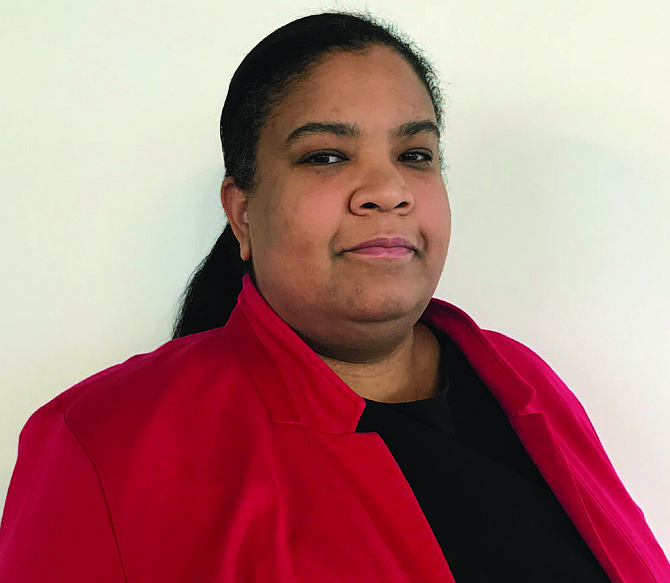NEW INITIATIVE PROVIDES FOR BIPOC ARTS AND CULTURE ORGANIZATIONS
Dr. Tara Townsend is the vice president of research and evaluation at IFF. IFF, with funding from the Ford Foundation and other local funding arms, has created the Chicago’s Cultural Treasures initiative to ensure Black Indigenous People of Color – focused and led arts and cultural organizations, receive
funding to sustain themselves.
Chicago is one of seven cities to have this regional grant, from America’s Cultural Treasurers, which was seeded by the Ford Foundation. The Ford Foundation contributed $5 million in September 2020. Other foundations also contributed: John D. and Catherine T. MacArthur Foundation, $5 million; Joyce Foundation, $2.5 million; Terra Foundation for American Art, $1 million; Walder Foundation, $1 million; and $2 million from an anonymous donor.
The initiative is administered by the nonprofit financial institution IFF. Tara Townsend is vice president of research and evaluation at IFF.
Townsend said right now, the initiative is at an information gathering stage to find out the level of needs and the number of organizations that will be eligible for funding.
“Then, we really want to create a funding model that is different than traditional arts philanthropy, and really philanthropy in general, which is to have one that is more responsive and more flexible,” she said.
Townsend said there will not be maximum and minimum grant awards set. Instead, it will be established on what IFF thinks is an investment that will support financial sustainability and resiliency of the grant recipients, based on what the organizations tell them.
“The purpose of this initiative is to really elevate organizations that are really anchors and provide that cultural grounding for communities, communities geographically, but also communities culturally,” she said.
Townsend said Ford’s thought was that organizations that, due to historical lack of funding and investment, were being more affected by the pandemic and would be lost forever, and all that would be left would be predominantly organizations that focused on Western European art and artists.
“This is an effort to preserve those organizations (BIPOC led and focused) and it’s really done with a lens what are the organizations within the Chicagoland region that the community really feels are their core cultural treasures,” she said.
Townsend said this initiative is more of a participatory grant-making model, which hands the decision- making power about where the funding goes to the communities that are most affected by those funding decisions.
“It’s not going to be a bunch of members of philanthropic organizations or foundations sitting in the rooms making those decisions. We’re getting a committee pulled together of folks from within and across the region who understand and appreciate the role arts and culture play within communities, and letting them make those decisions,” she said.
Townsend added, usually funding is tied to budget size, and with this grant, that will not be part of the decision-making process, which means smaller organizations might receive larger portions of grant money. Also, some organizations might receive a larger one-time grant and others might receive a smaller, multi-year grant, and allow for flexibility in the way the funding is distributed.
“The organizations know what they need to be financially sustainable and we’re going to let them tell us and we’re going to do our best to provide support in a way that matches what they need,” she said.
Arts and culture organizations must send a letter of intent by Friday, Jan. 22. For more information, visit www.chicagosculturaltreasures.org.
Latest Stories
- ISBE and Lurie Children’s Launch Free, Data-Informed Resilience-Supportive Schools Illinois Initiative to Strengthen Student Mental Health and Resilience in All Schools
- Alzheimer’s Association Illinois Chapter Strengthens Commitment to Health Equity Through Diversity and Inclusion Initiatives
- Actress Draws From Life Experiences For Music And Acting Preparation
- Former Journalist’s Fragrance Company Promotes Self Care
- Doctors Provide Information About Resources For Women Experiencing Menopause
Latest Podcast
STARR Community Services International, Inc.

